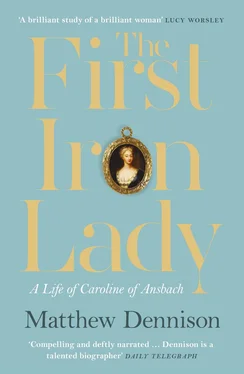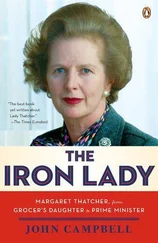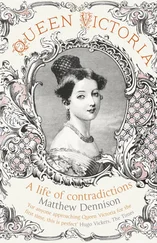Until now Caroline’s exposure to Catholicism had been scant. In 1685 the Great Elector had passed the Edict of Potsdam, offering protection in Brandenburg to French Protestants in the aftermath of Louis XIV’s revocation of the Edict of Nantes. Since 1701, and the religious conversion of her improvident third son Maximilian, Sophia of Hanover had nurtured a vitriolic hatred of Jesuits, which she certainly communicated to Figuelotte. The Lutheran orphan Caroline found herself living with Calvinist guardians in a state that was tangibly and proudly Protestant. ‘I feel assured that your Highness … will … accord [Father Orban] a patient hearing and then your fullest approval,’ the Elector Palatine wrote to her. 96It was an optimistic statement and one that, despite its measure of coercion, acknowledged likely obstacles. 97
As summer turned to autumn, Frederick found himself on the horns of a dilemma. From an alliance with the imperial family he anticipated considerable boon; as his protests in the early 1690s against the proposed creation of a Catholic tenth electorate for ‘a prince of the house of Austria’ indicate, his was a Protestant outlook. 98That he anticipated the probability of Caroline’s resistance to apostasy, even in the face of arguments of powerful material persuasion, points both to aspects of Caroline’s character and the strength of her religious convictions. Frederick did not resort to sophism. There is a cynical truthfulness in his appeal to her that includes, as she understood, a reminder of what she owed to him and his guardianship. ‘For your part you may be able to exercise a moderating influence,’ he told her, ‘not to mention the advantages therefrom that might accrue to our royal and princely house. I do not very well see how your Highness can decline such an offer, since it is to be hoped that you will be so firmly established in your religion that no one need feel anxious about your soul.’ 99
For an instant, Caroline was persuaded. She yielded. To the Elector Palatine, who had sent her Father Orban, she wrote that she had perceived the errors of her Lutheranism. 100To the authorities in Vienna, the Austrian resident in Berlin reported that she ‘had already changed and was resolved to marry the King of Spain’. 101And Caroline agreed to a second proposed meeting with the Elector Palatine, this time in Düsseldorf.
The optimism of princess and imperial diplomat was ill-founded. Caroline’s meeting with the Elector Palatine never happened. Her confession of the errors of her faith masked considerable unease. Her discussions with Father Orban, attended by Leibniz, consisted of arguments ‘at length’ over an open Bible. Point-scoring oscillated between priest and princess, but the contest was unequal and the strain unsettled Caroline. ‘Of course, the Jesuit, who has studied more, argues her down, and then the Princess weeps,’ the electress Sophia explained to a niece. 102Afterwards Caroline told Leibniz, ‘I really think his persuasions contributed materially to the uncertainty I felt.’ 103The result of their discourse was anything but the ‘fullest approval’ for which the Elector Palatine had hoped. Orban’s smooth coaxing made Caroline miserable, and reinforced all of her objections. Nevertheless, in the midst of her turmoil, mistaking the way the wind was blowing, on 25 October Leibniz claimed ‘everyone predicts the Spanish crown for her’. 104
Those more finely attuned to Caroline’s state of mind saw that the matter remained unresolved. In the same week, during a visit to Figuelotte at Lützenburg, Sophia noted Caroline’s vacillation: ‘Our beautiful Princess of Ansbach has not yet resolved to change her religion.’ 105A fortnight later, she added, ‘Sometimes the dear princess says “Yes,” and sometimes she says “No”; sometimes she believes we [Protestants] have no priests, sometimes that Catholics are idolatrous and accursed; sometimes she says our religion may be the better. What the result will be … I still do not know.’ 106Unnecessarily, Sophia explained that, as long as Caroline remained firm, ‘the marriage will not take place’. 107On 1 November Figuelotte noted that Caroline was ‘still uncertain which course she will take’. 108
In the circumstances, the doggedness of Caroline’s indecision is remarkable. Prior to her ‘adoption’ by Frederick and Figuelotte, her prospects had been limited, as she understood, and as the insignificance of her stepsister Dorothea Frederica’s match proved. In Brandenburg she had received an education and promotion beyond aspirations that she could have nurtured either at Pretzsch or, like Dorothea Frederica, fatherless in Ansbach. The result was an offer of marital jackpot, the hand of Prince Charming for this provincial Cinderella. ‘Neither shall I dwell upon her high birth and station any longer than to observe, that she seems to be the only person ignorant of that superiority. She has never been heard to give the most remote hint of it,’ a satirist wrote of Caroline, with vituperative irony, in 1737. 109Whatever the truth of Caroline’s self-importance at the end of her life, in the autumn of 1704 she could have been under no illusions that it was the archduke, not she, who conferred the favour in any proposed connection between them. Up to a point religious scruples and a wish to retain spiritual autonomy weighed as heavily as worldlier ambitions. Even if she was aware of contemporary views of Vienna as a region ‘where mirth and the muses are quite forgott [sic]’, she cannot have been anything but torn, this child of high-ranking penury alert to the frustrations of a princess’s life without position or means. 110
She found herself surprisingly alone. She knew Frederick’s mind; less clear were Figuelotte’s thoughts, at first apparently concealed from her. In June, Figuelotte had explained to the Hanoverian diplomat Hans Caspar von Bothmer her belief that Caroline’s likelihood of marrying Charles depended on an improvement in Charles’s fortunes in Spain. In September she confided to him in secret her conviction that the marriage was imminent, and stoically she resolved to enjoy Caroline’s company while she could. 111She consoled herself that princess and archduke shared a love of music: ‘The Princess of Ansbach sings well. She acquits herself wonderfully [as a singer] and this will be very convenient, as the King of Spain is a skilled accompanist on the harpsichord.’ 112Possibly the older woman cherished hopes of marrying Caroline to her own son Frederick William. If so, she kept her own counsel.
Sophia’s attitude was less ambiguous. She had already convinced herself of the suitability of her daughter’s ward for her grandson, George Augustus, and had discussed this conviction with Figuelotte. 113This being so, Caroline too may have been aware of the direction of Sophia’s thoughts. In this case, she possessed solid grounds for refusing Charles, since she could assume the likelihood of another proposal, namely George Augustus’s. Sophia, however, hardly dared to hope. ‘If I had my way, she would not be worried like this, and our court would be happy,’ she wrote on 27 October, ‘but it seems that it is not God’s will that I should be happy with her; we at Hanover shall hardly find anyone better.’ 114Meanwhile, in Ansbach, William Frederick’s minister von Voit encouraged Caroline to accept Vienna’s offer. Powerful tugs in opposing directions did little to mitigate her difficult decision.
Her willingness to convert, communicated to the Elector Palatine in good faith, unravelled over the course of the autumn. Anticipating opposition, in November Caroline announced to her guardians her inability to change her faith. To her surprise, Frederick commended her right-thinking in avoiding becoming the first Catholic princess in his family; Figuelotte encouraged her resolve, which Leibniz was instructed to convey in writing to Vienna. 115For the Austrians, there could be no such comfortable reflections as Frederick’s. On 4 November, Thomas Wentworth, Lord Raby, reported to Robert Harley in London the concerns of the imperial resident in Berlin about Caroline’s new determination to remain Protestant. 116A week later, Raby confirmed that Vienna’s anxiety had given way to anger. 117
Читать дальше












